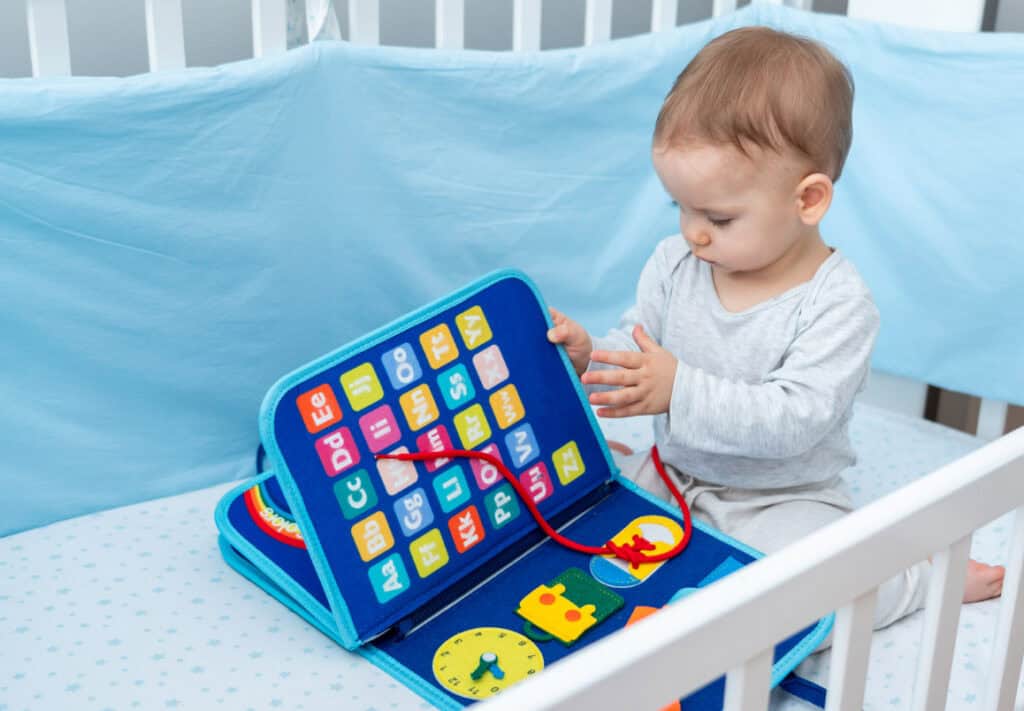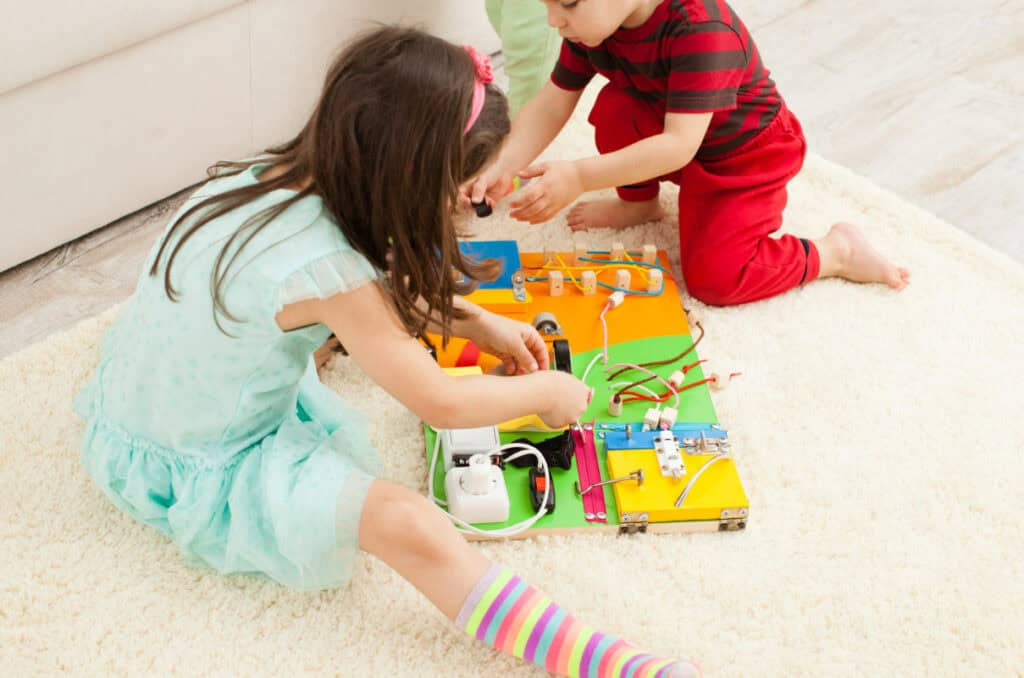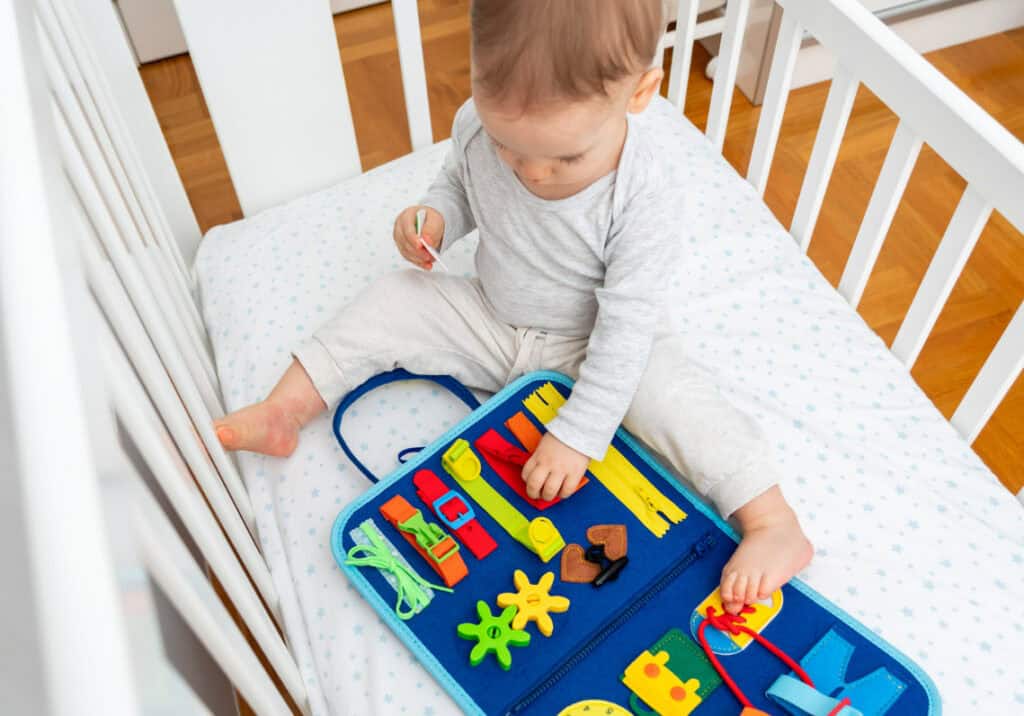Play is a crucial part of child development, promoting the formation of various skills, the development of intellectual abilities, and social adaptation. Wooden puzzles and interactive boards (busy boards) hold a special place among toys that effectively support a child’s development.
Table of Contents
Let’s find out how puzzle toys, particularly busy boards, contribute to child development and what specific benefits they offer.

Wooden Puzzles: Benefits and Advantages for Child Development:
- Development of Logical Thinking and Concentration. Wooden puzzles help children develop logical thinking as they learn to analyze the shapes, sizes, and colors of pieces to assemble them correctly. Additionally, assembling puzzles requires a high level of concentration, which helps develop the ability to focus on a task for an extended period.
- Improvement of Motor Skills. While assembling puzzles, children use fine motor skills of their hands and fingers. They learn to control their movements, which aids in the further development of writing skills and other activities that require precise coordination.
- Development of Visual-Spatial Perception. Wooden puzzles contribute to the development of visual-spatial perception as children learn to recognize shapes and match them with corresponding slots or areas. This helps form an understanding of space and the relationships between objects, which is important for future learning in mathematics and other disciplines.
- Development of Patience and Perseverance. Assembling puzzles often requires significant effort and time, teaching children patience and perseverance. They learn not to give up in the face of difficulties and to see tasks through to completion, which are important traits for successful learning and life.
- Enhancement of Independence and Confidence. When children assemble puzzles on their own, they feel satisfaction from the achieved result, boosting their confidence in their abilities. Solving tasks independently promotes the development of independence and initiative.
You can order inexpensive puzzles and busy boards online with home delivery at the Busypuzzle online store: https://busypuzzle.com/

Interactive Boards (Busy Boards): Benefits and Advantages for Child Development:
- Promoting Sensory Development. Busy boards contain various elements such as locks, buttons, laces, spinners, and others that children can touch, press, and twist. This promotes sensory skills development as children experience different tactile sensations and learn to distinguish textures and shapes.
- Development of Coordination and Motor Skills. Playing with busy boards helps develop movement coordination and fine motor skills, as children perform various manipulations with small elements. This helps prepare their hands for writing and other precise movements.
- Stimulation of Creative Thinking. Busy boards usually contain elements that can be combined and used in different play scenarios. This stimulates the development of creative thinking and imagination, as children can experiment with various combinations and invent new ways to play.
- Enhancement of Problem-Solving Skills. Busy boards often have tasks that require children to find solutions, such as opening a lock or pressing the correct button. This promotes the development of problem-solving skills, logical thinking, and decision-making abilities.
- Social Development. Playing with busy boards can be a group activity, which promotes the development of social skills such as cooperation, communication, and interaction with other children. They learn to share, negotiate, and work as a team, which are important for future life.

Wooden puzzles and interactive boards (busy boards) are important tools for child development. They promote the development of logical thinking, motor skills, visual-spatial perception, patience, and independence.
Additionally, busy boards stimulate sensory development, coordination, creative thinking, problem-solving skills, and social skills. Using such toys ensures the comprehensive development of a child and prepares them for future stages of learning and life.



